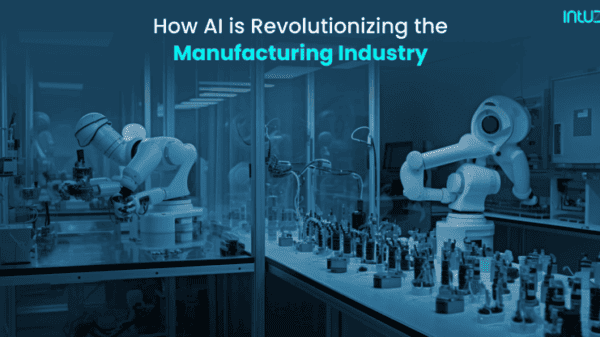Industry 4.0” is a buzzword that has been increasing in popularity and application in recent years. World over, organizations of different industries are adopting ways and means to shift from traditional manufacturing methods to automated and digitized procedures and processes.
In the past years, we have added several new technologies to the industries for different purposes, whether it is for manufacturing or for accounts management. But this time, the technologies are getting better; they are getting more efficient and, at the same time, more sophisticated. For now, let’s glance through the industry 4.0 trends.
What’s so Special About Industry 4.0?
One of the main constituents of Industry 4.0 is smart and connected production systems and technologies. These technologies and systems will help sense and interact with the physical world while giving individuals a glimpse of the digital world in real-time. When understanding in terms of manufacturing, Industry 4.0 means using technologies and measures that can increase workplace productivity, efficiency, and sustainability.
Two systems stick out when we are talking about industry 4.0, automation and data interchange. These two systems will enhance productivity and industrial outcomes. According to UNCTAD, Industry 4.0 technologies can increase production line activities by 5% to 15%.
Moreover, with industry 4.0 systems, factories can reduce their power consumption by over 40%. All these benefits will come, maybe instantly, or maybe they will take their time, but everything will start to happen when the organizations start using the technologies and systems associated with Industry 4.0.
Notable Industry 4.0 Trends in 2023
With the addition of new technologies, these organizations also need to hire the required talent and workforce that can manage all the tasks and deliver the intended solutions. Technology has a big impact on the next generation of the industry. Whether they can improve the parameters from what they are at present or decrease depends on how we utilize these technologies.
-
Optimal Energy Usage
The Industrial Revolution began in the 1770s when Richard Arkwright used a steam engine to power textile machinery for the first time. From the starting point till today, we have been consuming energy consistently to power our houses, factories, offices, and whatnot. We have come to a point where taking stringent action to reduce energy consumption has become necessary.
Lowering energy consumption will be one of the first benefits of industry 4.0. Here, we will use cleaner fuels and renewable energy to power the factories, houses, and factories. As a result, the dependence on high energy-release power sources like coal and fossil fuels will reduce. However, to achieve this benefit, industries also need to step up and find ways to reduce their energy consumption.
-
Internet of Things
IoT is one of the best things ever to happen to the industry. We might have been talking about IoT in every respect for years now because it is a powerful technology. In all the references you can find online from 2018 to 2023, IoT will be on the list of future trends, technologies, life-changing technologies, etc.
Why So? The reason is IoT has a significant impact on how we run our businesses, factories, houses, jobs, life, etc. With IoT, every industrial entity can run this efficiently and accurately. Whether you are talking about machines interacting with each other and making the best possible decisions or curtains unfurling in the morning according to the sunrise time, IoT has a role to play.
-
3D Printing
3D printing is taking its form, still but with what we are seeing right now, it’s an amazing technology with a lot of potentials in the future. 3D printing is not limited to printing small figurines, bobbleheads, etc. We see its application in the construction industry, and manufacturers are using it to create low-cost working prototypes.
Moreover, with its ability to be reshaped and reformed in a computer design and then reprinted to another test run, the companies will still save money than building an actual model and then testing its applications, only to work on it again.
-
Integration of 5G
Higher speed, better performances, more connections, and mountains of data transfer require an equally efficient internet connection. This is where 5G comes in, which is supposed to deliver 20GBps. This means 5G is 100X faster than 4G. Not only is it better in terms of speed, but the 5G will also improve communication, tracking, data storage, and much more.
-
Cloud Technology – Refined
Cloud technology is going to get better and more refined because of the merger of different technologies. This includes combining SaaS, PaaS, and IaaS. Moreover, the systems we are going to use will be tailored to the specific functionality. Due to this, organizations can easily adapt to cloud technologies and systems.
-
Adaptive Artificial Intelligence (AI)
Adaptive artificial intelligence is capable of revising its own code to adjust functionality according to real-world changes and applications. Moreover, these changes were not known at the time of the implementation of AI systems initially. Adaptive AI brings resilience and adaptability into the design, allowing companies to react quickly to disruptions.
For businesses in every industry, learning the new changes and quickly adjusting the products and systems according to the new requirements. It allows businesses to learn behavioral patterns with the help of past human experiences, machine performance, etc.
For any business, making the right decisions is essential. Adaptive AI gives a business the required flexibility and efficiency to create an efficient and intelligent organization.
-
Smart Manufacturing
Manufacturing activities and processes need to be addressed with a new outlook. With a motive to reduce operational costs and increase visibility, smart manufacturing systems can be set into place. Smart manufacturing can help solve visibility problems and challenges while addressing work floor concerns. It can lead to developing and sustaining the required quality standards.
Moreover, smart manufacturing can address the manufacturing processes involving time-sensitive materials. It can help with effective management and tracking, along with providing real-time visibility.
It can also include extending automation capabilities and maximizing workforce utilization. Smart manufacturing-induced automation ensures clear-cut procedures and eliminates production delays.
-
Predictive Maintenance
Predictive maintenance is the best answer to the cost of downtime. Businesses and manufacturers across the globe are troubled by unprecedented and unexpected downtime. From network downtime to work floor downtime, it has become a menace for companies costing them millions of dollars in losses.
Predictive maintenance allows companies to take advantage of the information they receive with regard to the machines. With this, the machines will be able to deliver optimum performance. Moreover, manufacturing houses and companies have proven results when it comes to reducing downtime and unexpected disruptions in the work. It helps prevent sudden breakdowns; we can replace faulty parts and reduce unplanned outages.
As a result, we are able to save time, money, and resources that otherwise will be spent on finding solutions and repairing existing resources.
-
Augmented Reality and Virtual Reality
The integration of AR and VR technologies into our industry is going to bring great results. As both these technologies will bring the practitioners closer to their work practices, products, and services, they can help a business streamline its production processes. From helping with effective remote assistance to providing AR and VR-enabled walk-throughs to repairs and troubleshooting.
The pandemic has given a boost to the applications of AR and VR technologies, especially in the field of education and customer services. In Industry 4.0, AR and VR technologies will get better exposure and allow companies to provide better customer experiences. In the field of product and service development, AR and VR technologies can reach $360 billion by 2030.
-
Next-Gen Manufacturing ERP
Enterprise Resource Planning allows companies to streamline their operations and automate repetitive business tasks. It can also be used to provide real-time information and ultimately reduce overall costs. As a result, businesses in the industry 4.0 era will want to adopt a data-driven approach for business processes facilitated by the next-gen manufacturing ERP. They can utilize the benefits of ERP to deliver better value.
Four Themes of Business Activities in 2023
In 2023, businesses will want to work on four major themes, resulting in improving customer experiences and delivering higher value. These themes are;
- Optimize: The key aspect of this theme is granting better reliability and higher accuracy in decision-making backed with real-time data analysis. The companies will be able to deliver greater value with technologies like AI.
- Scale: As more pertinent technologies are added to the mainstream processes, businesses can provide better offerings, especially in terms of production, delivery, and connectivity.
- Pioneer: Under this theme, businesses will get opportunities to expand on existing networks, tap into virtual markets, and focus on changing the business model according to the requirements.
- Sustainable Technology: The sustainable technology framework is going to increase the energy efficiency and adaptability of IT services.
Conclusion
The top trends of industry 4.0 will allow businesses to fulfill the needs of their work floor, offices, stakeholders, and customers. It will help them align the business processes with the present market situation and deliver innovative outcomes.
These trends, if implemented well, will provide strategic benefits to the companies offering them operational and financial benefits while opening new arenas for growth opportunities. Moreover, businesses working with Intuz will be able to capitalize on any of these technologies and receive bespoke solutions for their operations and process.
Patrick R, A techno-commercial leader heading Intuz as Director of Growth With over 12 years of experience in the field of Information Technology. His experience and expertise will entice developers and business entrepreneurs with rich content on latest technology stack. Visit for more information: https://www.intuz.com/
























































































































































































